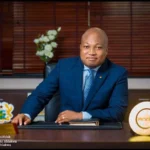Supreme Court Nominee Justice Hafisata Amaleboba has disclosed that various courts do not have enough manpower to help expedite justice delivery in the country. According to the nominee, a particular court may have as many as 300 cases for only one judge at a point in time, stressing that this situation delays justice delivery.
Justice Hafisata made this known during her vetting on Wednesday by the Appointments Committee as a nominee to the Supreme Court.
Explaining further to Members of the Committee on what causes delay in justice delivery, the nominee added that long procedures and no timelines to cases are major hindrances to speedy justice delivery. She urged the appropriate Committee in charge of court rules to consider the procedures of various applications and find a way of shortening it to fast-track cases.
Commenting on the suggestion to limit the number of judges at the Supreme Court, the nominee admitted that she believed in the capping of Judges at the Supreme Court but work must be done to solve backlog of cases as well as developing a system allocating a particular number of cases per year.
Answering questions on marital issues relating to her experience at the Appeal Court, the nominee noted that when it comes to family law, the principles are applicable equally to men as it does to women.
“When it comes to distribution of marital property, it is not based on gender, even though it may seem so but the law is not based on gender” she stated.
She cited that there was a divorce case where a man had no property but his wife had properties therefore, she allocated some of the wife’s property to the man.
On her views about bail conditions that seems almost impossible for suspects to meet, the nominee pointed out that all offences are now bailable. She stressed that suspects also have the liberty to apply for variation at the court when they cannot meet the conditions.
Justice Hafisata Amaleboba who happens to be one of the two females among the seven Justices nominated by President John Mahama to the Supreme Court, also answered questions on academic qualification of Members of Parliament, e-justice, her National Service Certificate, rule of law and accountability among others.






